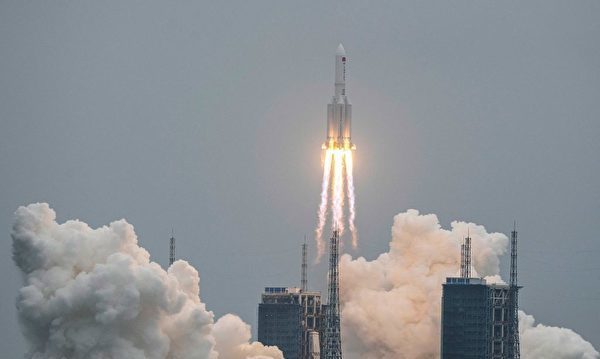[Epoch Times, August 4, 2021](Epoch Times reporter Xu Jian comprehensive report) On Tuesday (August 3) morning, Beijing Interstellar Glory Space Technology Co., Ltd. (iSpace) launched the “Hyperbola-1” (Hyperbola- 1) The launch vehicle failed again, but within a few hours after launch, it was in a state of unclear information. A journalist based in Helsinki, Finland, focusing on China’s aerospace industry (Andrew Jones), analyzed this.
At around 3:39 a.m. Eastern time on August 3 (15:39 local time), the “Hyperbola One” rocket ignited from the Jiuquan Satellite Launch Center.
Jones said that the launch was announced quietly and low-key ahead of time. After that, the CCP deleted a video posted by a fan on Weibo, which made people feel as if something went wrong.
Generally speaking, after a satellite is successfully launched into a sun-synchronous orbit, the launcher will usually get a report within one hour after launch. But after more than four hours (as of 8:00 pm Beijing time), iSpace and the Chinese Communist Party’s official media were silent.
The Chinese Communist Party’s official media confirmed that the satellite “did not enter orbit as planned.” Some netizens commented, “If you fail, you will fail. Don’t you dare to say it, but you haven’t achieved the expected goal? True hypocrisy.” Some commented on their Twitter, “Failure will fail, it’s all outside the wall. So hypocritical!”
The next day (August 4), iSpace revealed that due to the failure of the payload fairing to separate properly, the satellite could not be sent into the 500-kilometer SSO scheduled orbit.
This is the second consecutive failure of iSpace. As China’s first and most well-funded commercial launch company, the company raised US$173 million in Series B financing for the new rocket series last year, but failed to achieve the scheduled IPO.
In July 2019, iSpace’s first “Hyperbola One” rocket successfully put the satellite into orbit, becoming the first Chinese private launch company to enter orbit. But the second launch in February this year ended in failure. Later analysis believed that the reason for the failure was the foam insulation material, so the design in this area has undergone major changes this time.
iSpace is also working on a test bed for the reusable Hyperbola-2 (Hyperbola-2) methane liquid oxygen launch vehicle. In April, iSpace conducted a long-term variable thrust hot ignition test on its Jiaodian-1 engine.
As the small satellite market is expected to grow internationally, the medium and heavy launch vehicles of the large-scale Chinese aerospace group cannot meet the needs of commercial small satellites. At the end of 2014, the CCP decided to open up the launch and other sectors of the aerospace industry to private capital. This move was seen as a competition with the United States in terms of innovation and technology.
Editor in charge: Lin Yan #
.
